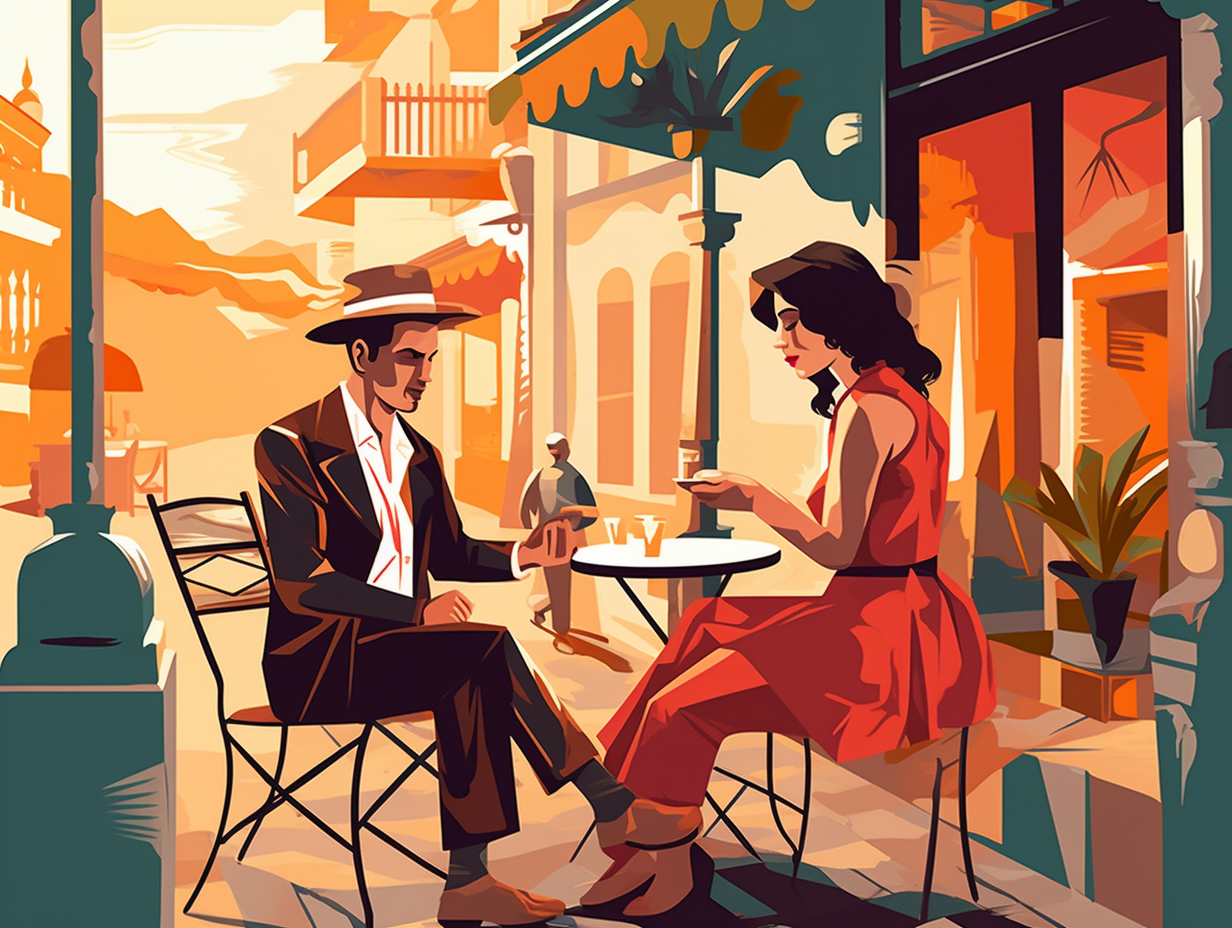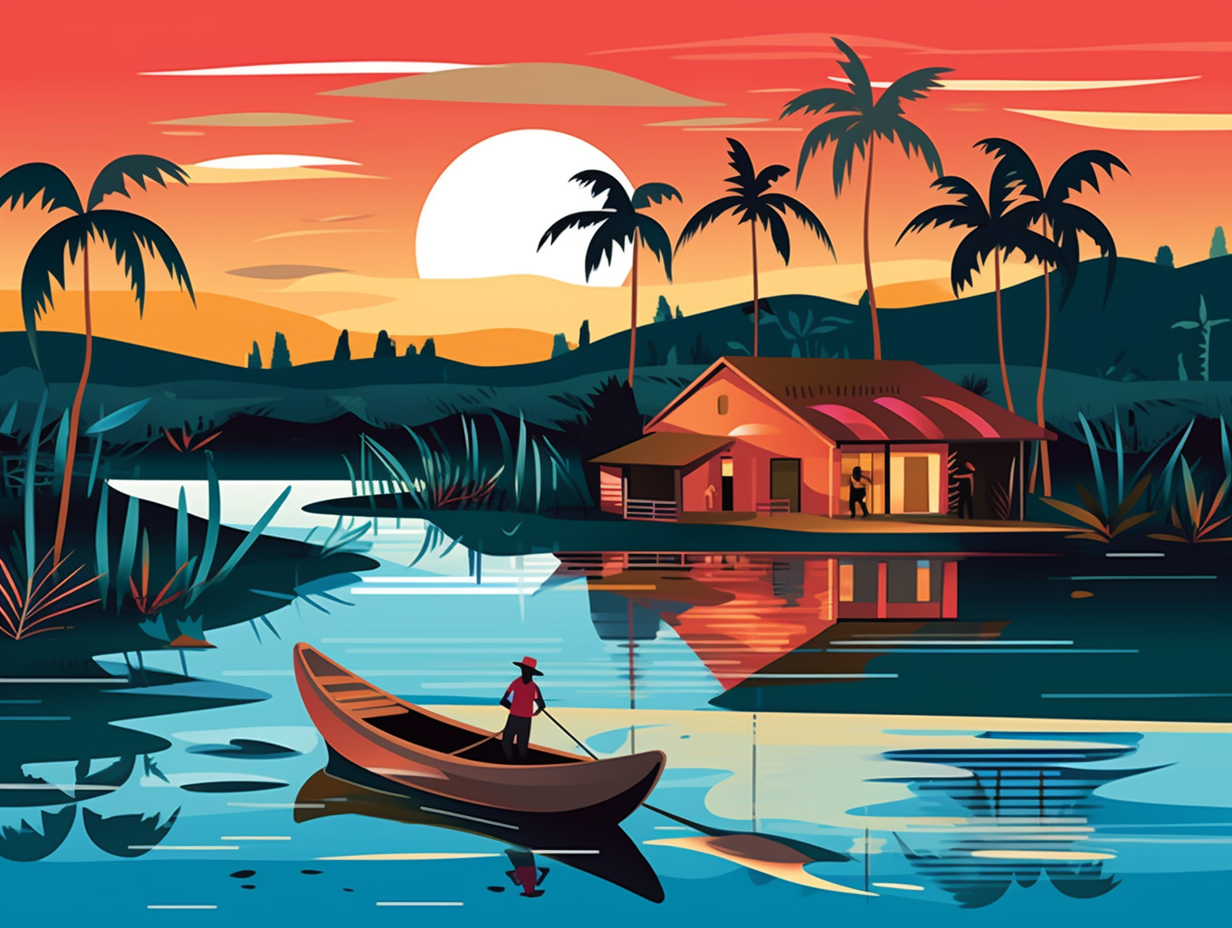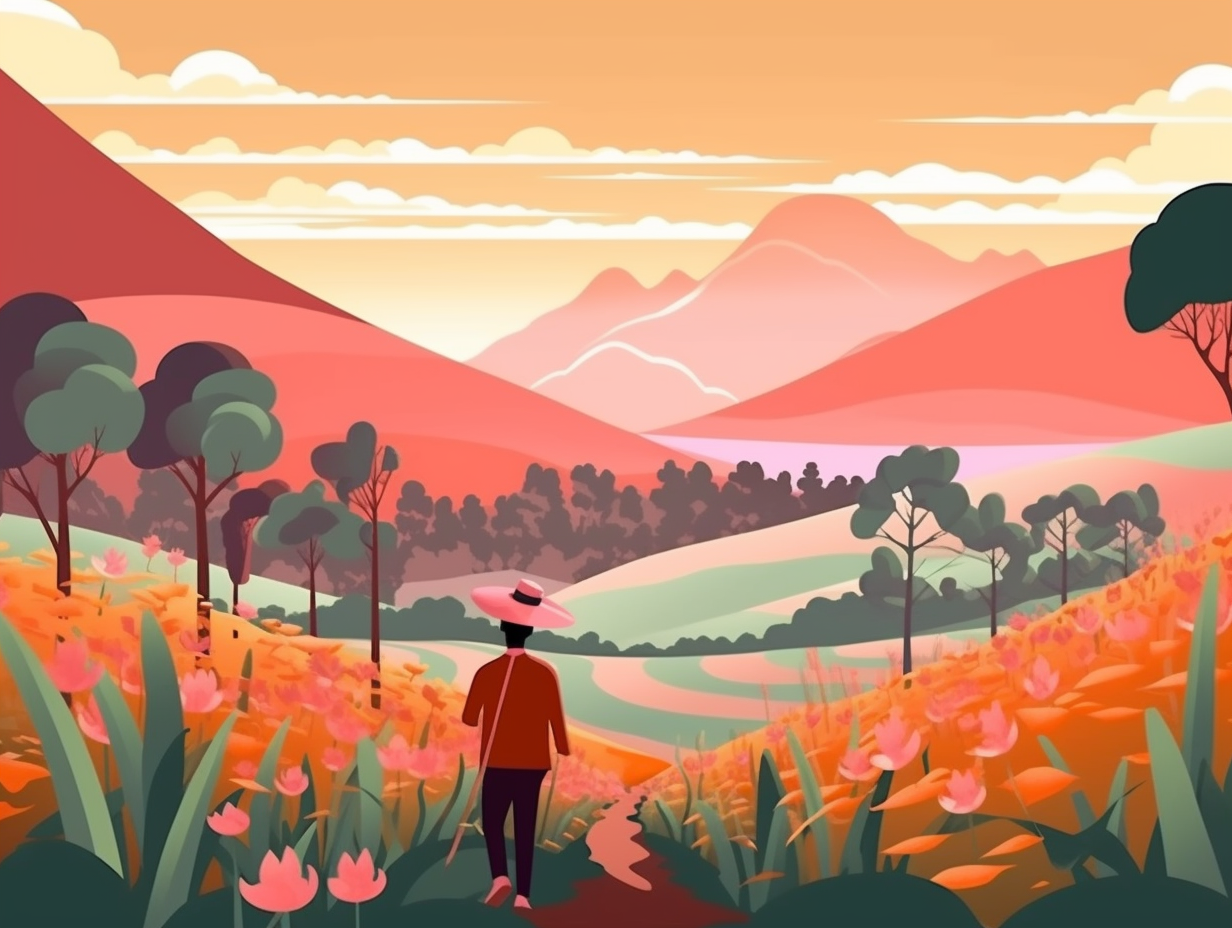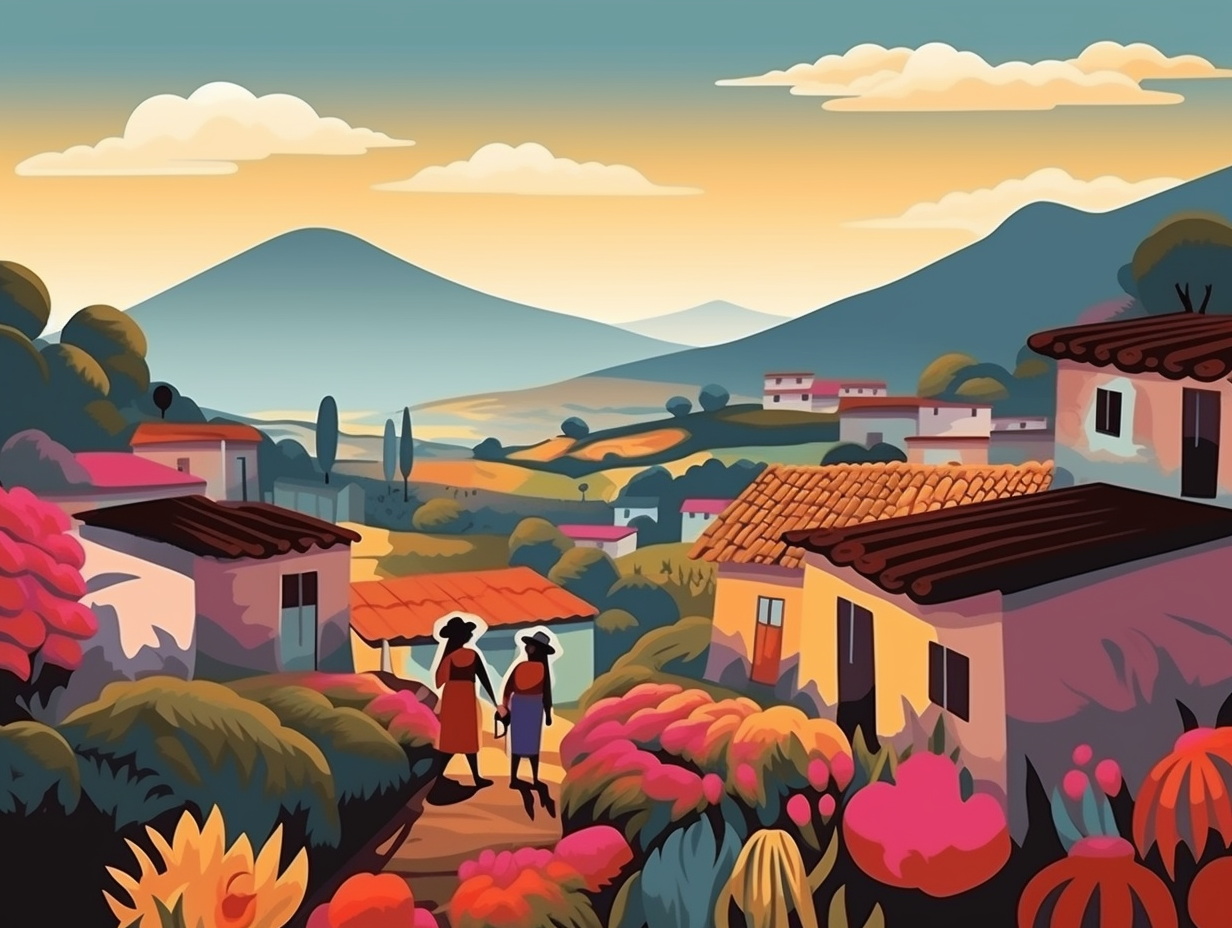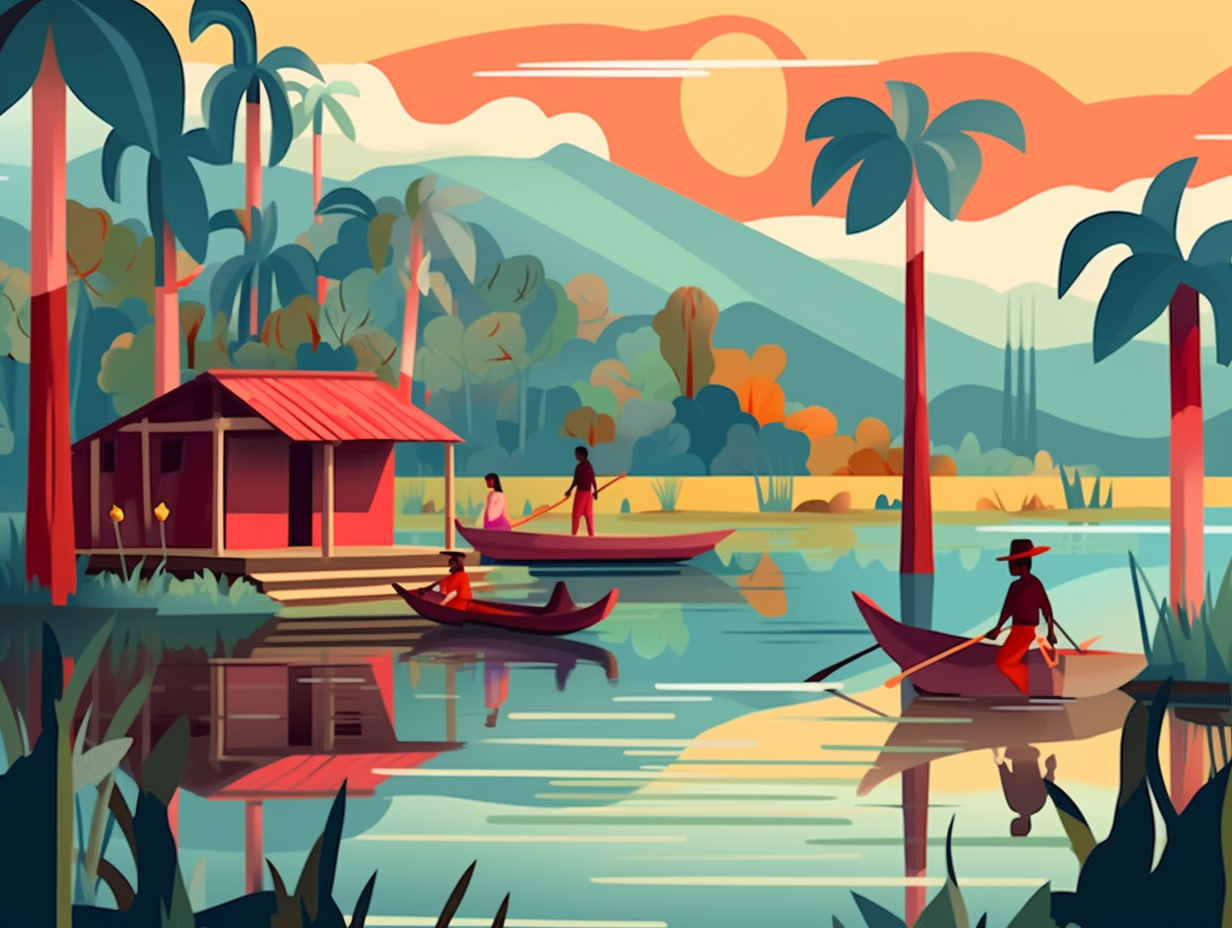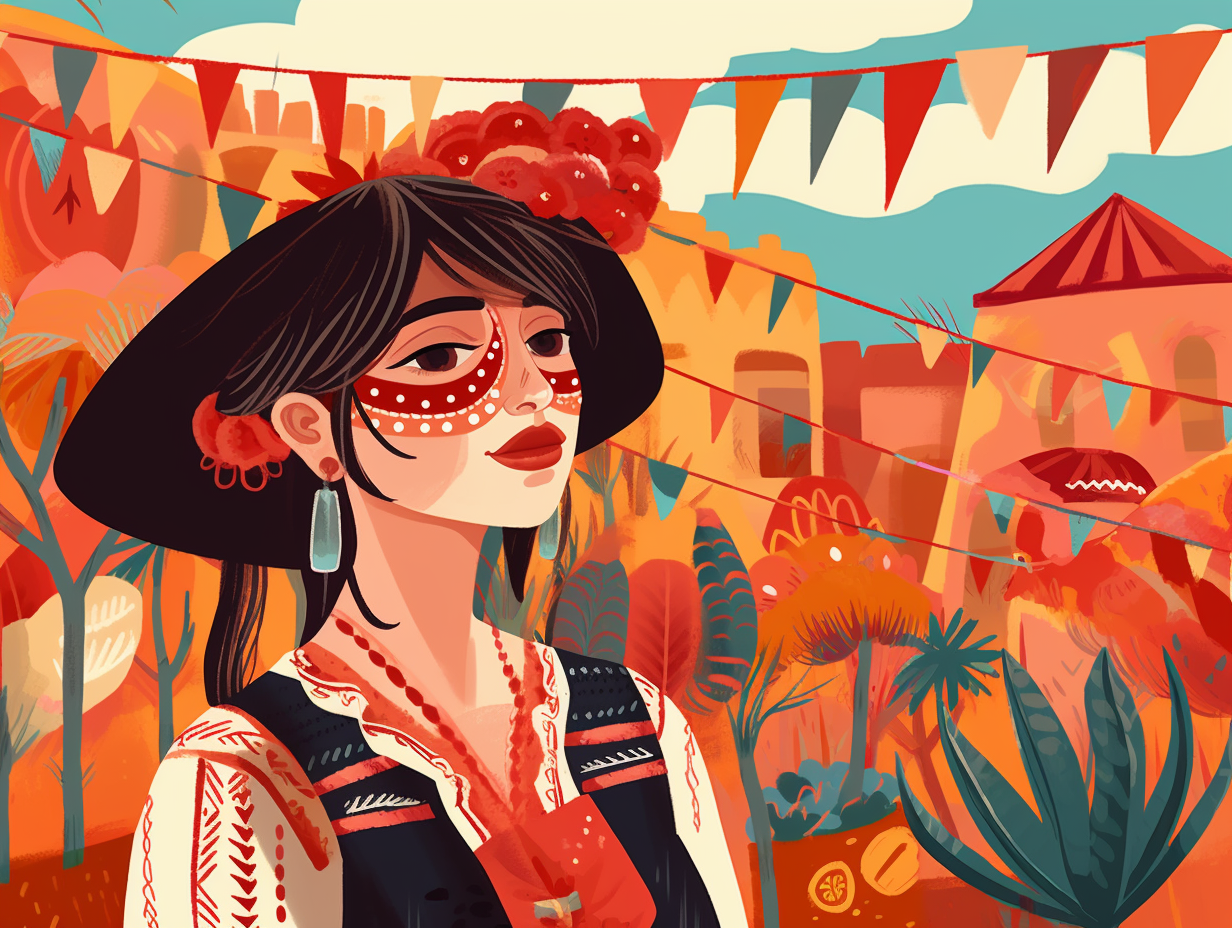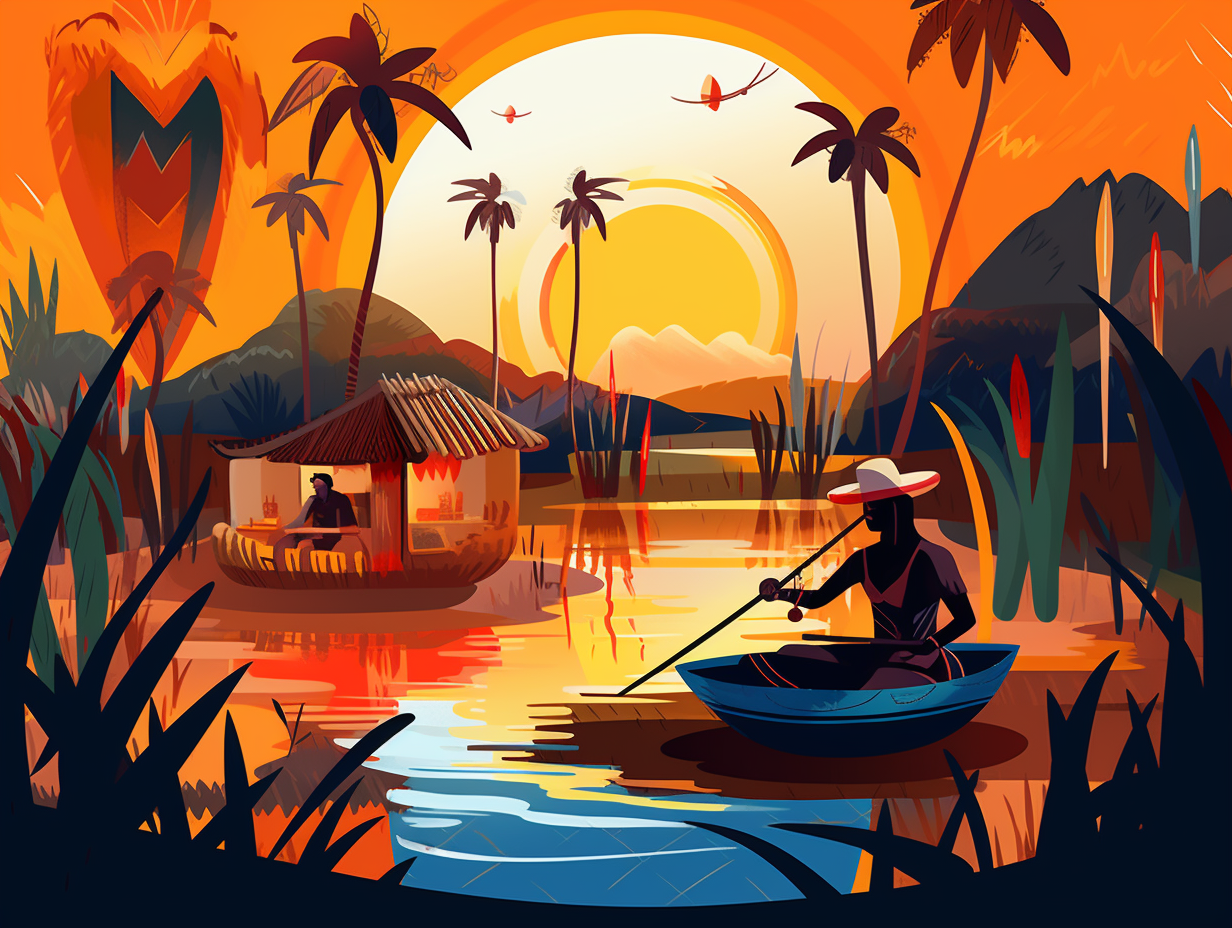Discover Haiti: Top 10 Fascinating Fun Facts to Amaze and Inspire You
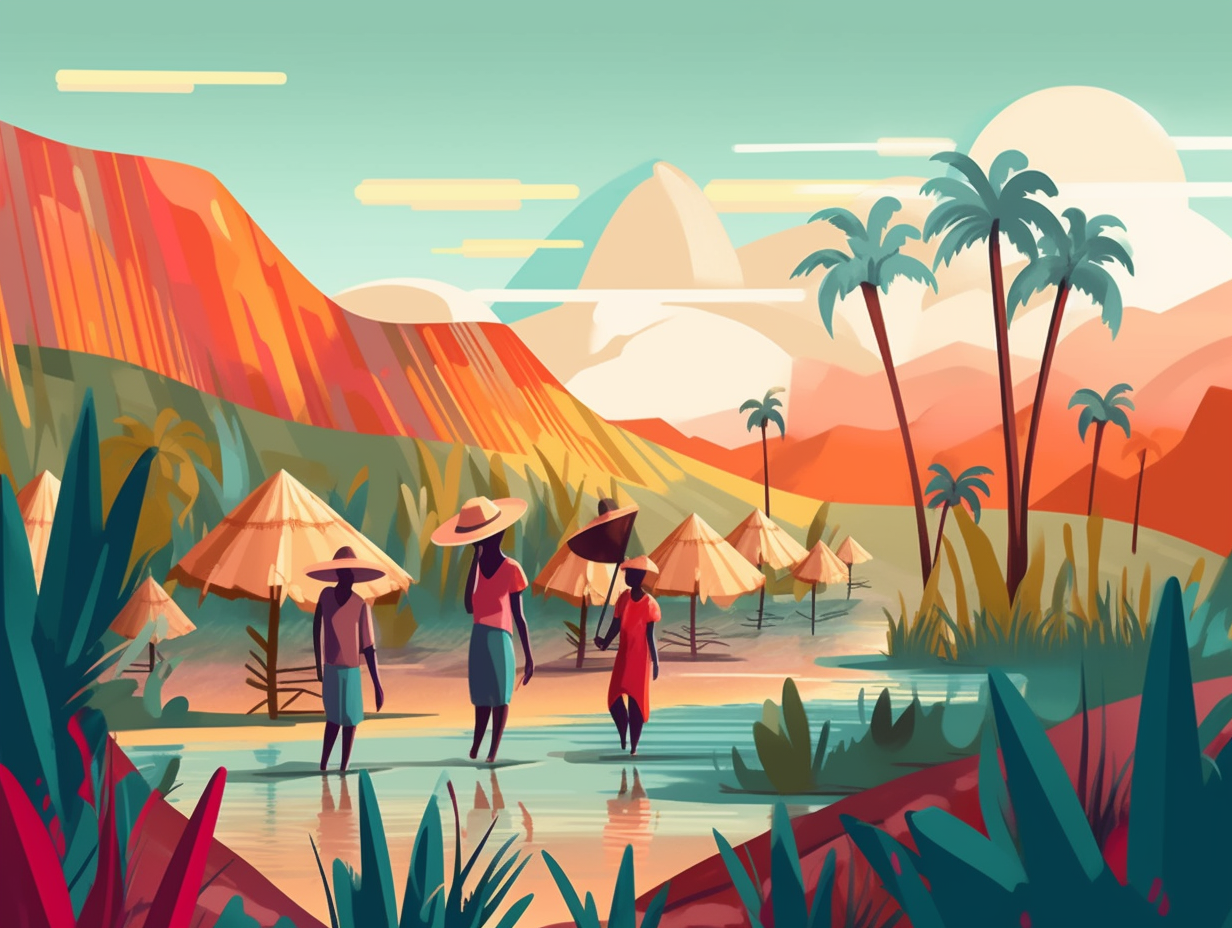
1. Catching Carnival Fever
When Mardi Gras sneezes, Haiti catches the Carnival fever: The Haitian Carnival, known as Kanaval, is a weeks-long party extravaganza leading up to Mardi Gras, celebrated in various spots like Port-au-Prince and Jacmel, and running from January's Pre-Kanaval festivities until Fat Tuesday in February.
Source => en.wikipedia.org
2. Linguistic Melting Pot
Who needs Rosetta Stone when you've got Haitian Creole: a linguistic melting pot unlike any other! With roots in 18th-century French, a West African grammar backbone, and sprinkles of Spanish, English, Portuguese, Taino, and other West African languages, Haitians stand as the proud and largest community speaking a modern creole language.
Source => en.wikipedia.org
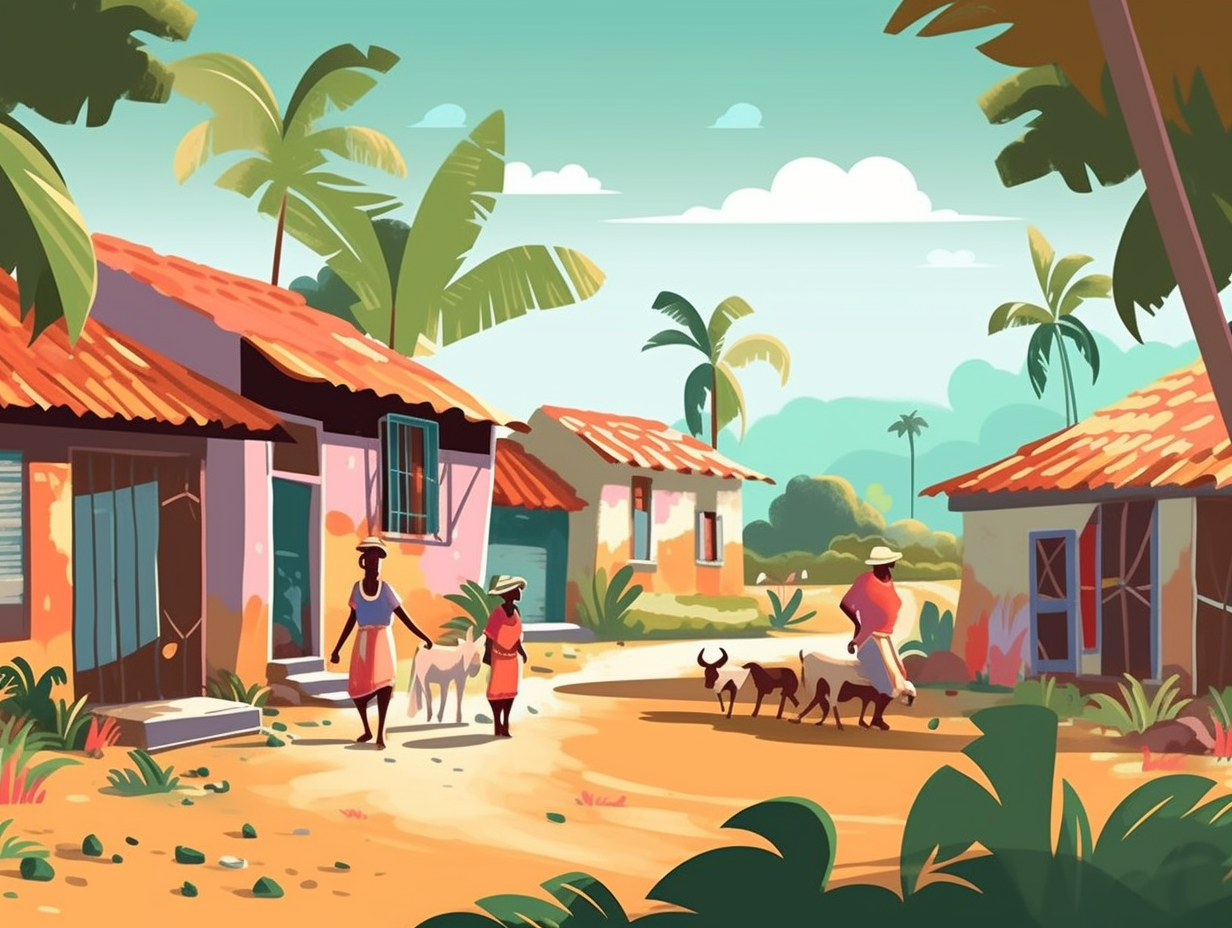
Did you know the Dominican Republic's national dance, Merengue, has origin stories linked to sugar cane cutting slaves and a limping hero? Discover how this Latin American dance delightfully merges African and French influences in a foot-tapping frenzy!
=> Fun Facts about Dominican-Republic
3. Zombie Cocktail Origins
In a plot twist worthy of a campy horror flick, Tiki cocktails such as the Zombie are deeply indebted to Haiti and its voodoo-infused history: Donn Beach, the creator of the original Zombie recipe, found inspiration in his Caribbean travels, including possibly Haiti, and the cocktail's name might be traced back to the 1932 Haitian-set film White Zombie which dabbled in voodoo and the undead, all while stirring in complex currents of Haiti's past struggles with slavery, resistance, and spiritual beliefs.
Source => slammie.com
4. Loup-garou Folklore
Little Red Riding Hood's Caribbean holiday took a turn for the bizarre: In Haiti, the "loup-garou" is a popular figure in folklore, believed to be a person possessed by a transforming spirit that takes the form of various animals, such as dogs, cats, snakes, and even chickens, to suck the blood of babies and young children. However, the idea that the 2010 earthquake unleashed these child-eating spirits is nothing more than a tall tale; despite the occasional hysteria of lynchings, there is no verifiable evidence of such spirits actually attacking children.
Source => alcimines.livejournal.com
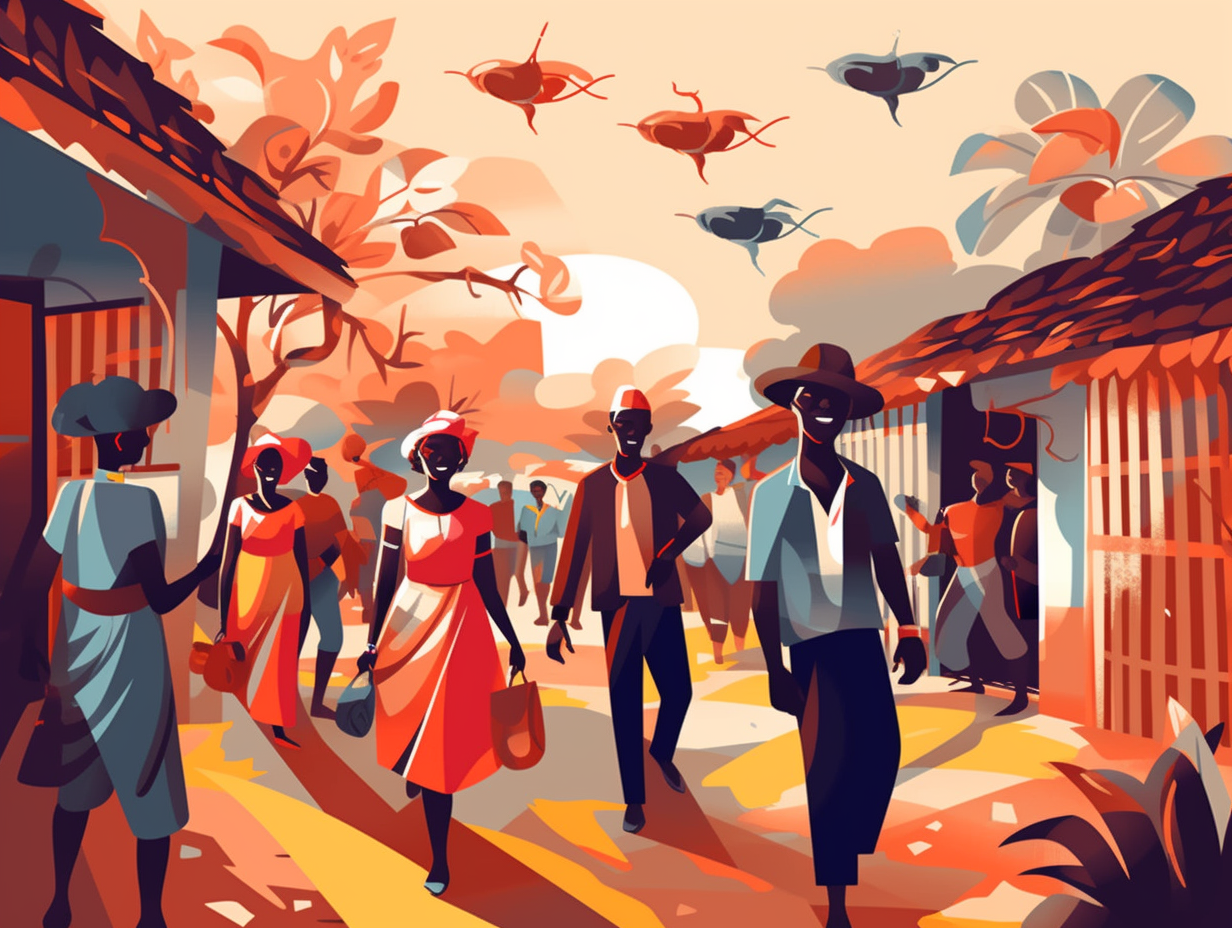
5. Ayiti - Land of High Mountains
Before Hollywood could even claim "lights, camera, action," the Taíno people were already naming the island of Hispaniola "Ayiti," meaning "Land of the high mountains:" Today, this name still stands as the French term for Haiti, one of the country's official languages, serving as a nod to these indigenous scene-setters who greeted Columbus with more than just stellar hospitality.
Source => blackhistorymonth.org.uk
6. Solar-powered Hospital
While it's not quite "Doc Brown charging the DeLorean with a bolt of lightning," Haiti has certainly powered up their healthcare game with impressive ingenuity: The Hôpital Universitaire de Mirebalais is the world's largest solar-powered hospital, providing innovative, sustainable care to thousands of patients each year.
Source => nationaltoday.com
7. Magical Squash Soup
Move over, Cinderella's pumpkin: Haiti has its own magical squash story! Soup joumou, a scrumptious Haitian specialty, boasts a tale that would even make fairy godmothers jealous: Originally made for French colonial rulers by enslaved Africans who couldn't partake themselves, it later became a symbol of Haitian independence when the country's freedom was won in 1804. Now, each year on Haitian Independence Day, soup joumou is enjoyed in celebration of the victory that transformed a forbidden dish into a delicious symbol of liberation.
Source => cooking.nytimes.com
8. Citadelle Laferrière
Talk about a Fortress of Solitude with a twist: The Citadelle Laferrière in Haiti is a mountaintop marvel commissioned by Henri Christophe and built by thousands of former slaves, making it the only African-derived military fortification in the New World.
Source => en.wikipedia.org
9. Kremas - Key to Haitian Hearts
If you thought the key to a Haitian heart was through their stomach, you'd be partly right, but the real route lies in a festive libation: Kremas, a scrumptious drink made from coconut, evaporated and condensed milk mixed with nutmeg, cinnamon, star anise, and a splash of Haitian rum or vodka, has been delighting taste buds since 1804 as an essential part of their Independence celebrations and holiday gift-giving tradition.
Source => savorythoughts.com
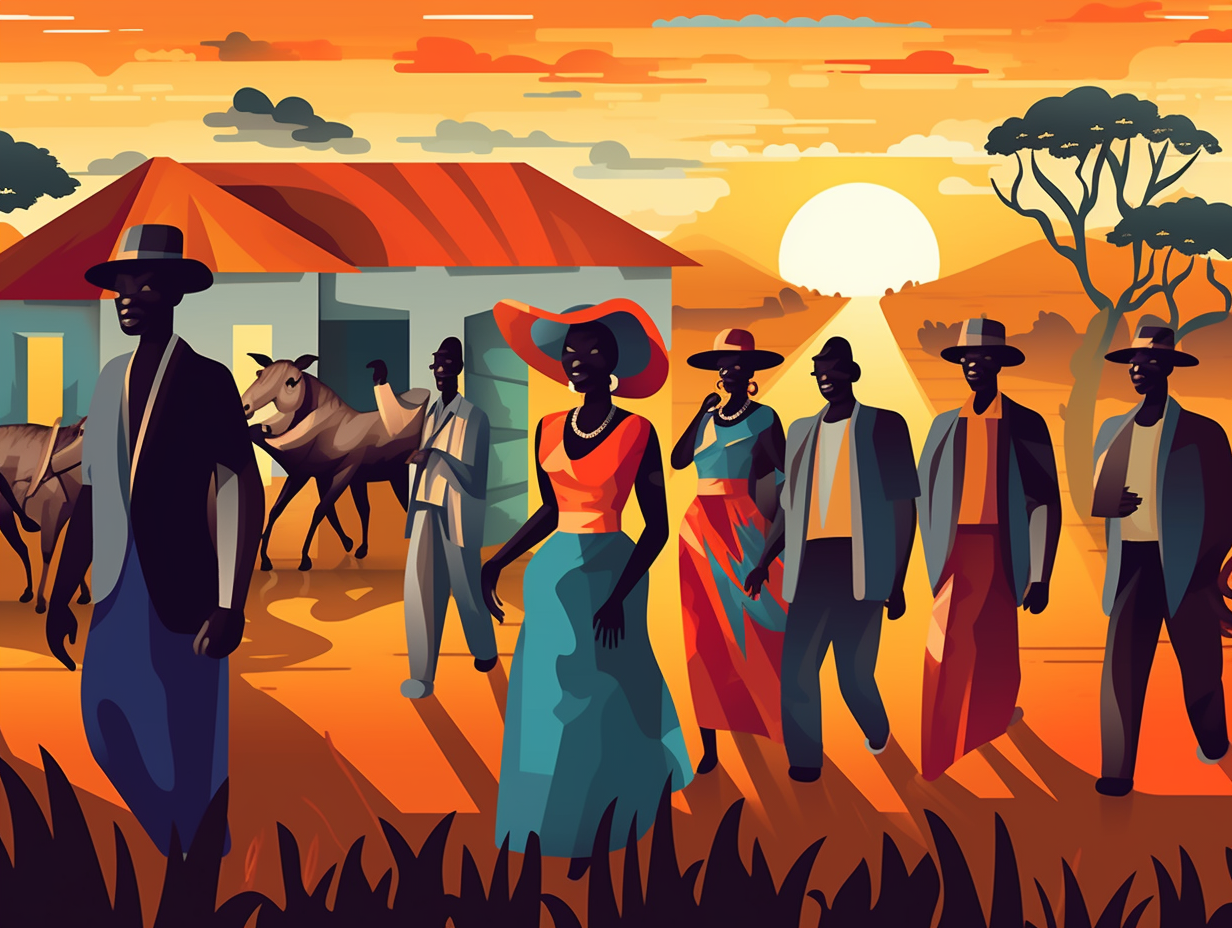
10. Ricinus Beauty Secret
In Haiti, the secret to luscious locks and glowing skin might just be a field day with your friendly, neighborhood Ricinus communis plant: Thanks to Kreyol Essence, a company that partners with local farmers to cultivate the castor oil plant, Haiti boasts a flourishing natural hair and skin care industry – featuring their pièce de résistance, Haitian Black Castor Oil, a centuries-old multitasking miracle potion.
Source => today.caricom.org
Related Fun Facts


